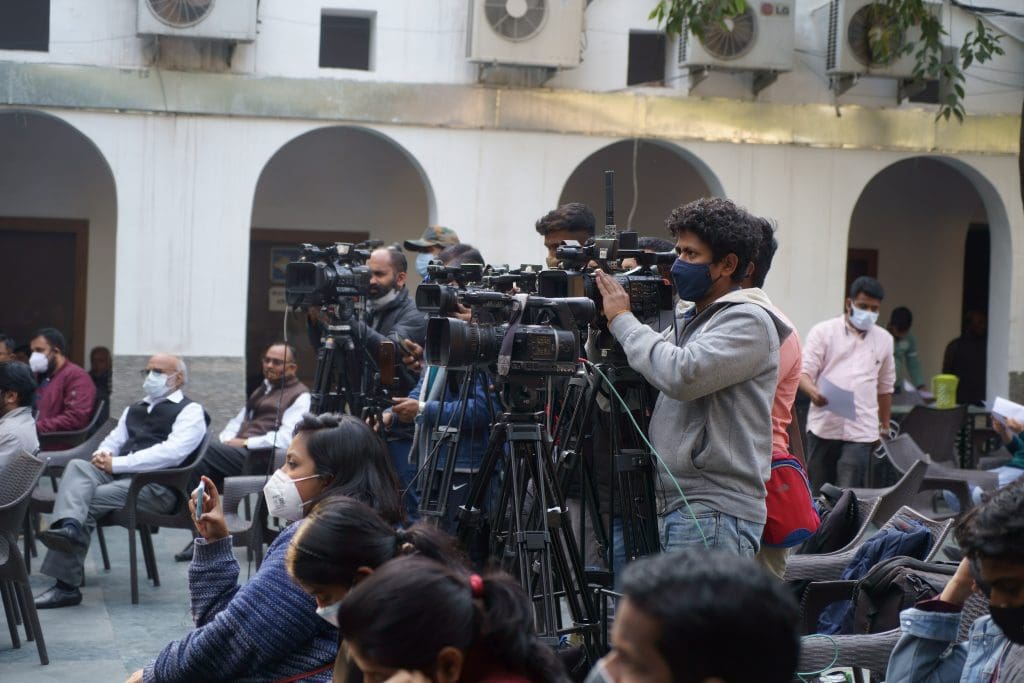
Since the beginning of the year, India has witnessed at least 134 instances of free speech violations in the country, according to a study by the Free Speech Collective.
The report “Crossing The Line: 18th Lok Sabha Elections and Free Speech In India”, published on Wednesday, found that 34 journalists have been attacked in the country since January.
According to the report, twenty-four instances of free speech violations were reported in academia, where censorship has become the norm”. The also lists 12 instances of censorship in news media, including the experience of Avani Dias, South Asia bureau chief of Australian Broadcasting Corporation, who was forced to pack her bags and leave because she was told her reporting had “crossed a line”.
“With false narratives, deliberate disinformation and hate speech dominating the electoral agenda, the space for verified information, the voicing of dissent or even raising serious debate has all but disappeared,” the statement by the watchdog read.
Among the states, Uttarakhand, with ten instances, topped the list of 46 attacks on account of free speech violations in the last four months, followed by Maharashtra, with nine incidents.
Key findings
Haryana had the highest number of internet shutdowns due to the farmers’ protest, followed by Punjab and Manipur, still ridden with violence. Manipur had the longest internet shutdown, from May to December 2023, with shutdowns continuing to be intermittently imposed.
It stated that free speech in India has sunk into a perilous abyss and steadily falling press freedom indices underscore the dangers of crossing a line that is becoming increasingly contentious. Journalists, academics, YouTubers, students and other citizens have faced arrests, attacks, threats, harassment and censorship, marked by arbitrary enforcement of rules and laws.
In January, government orders, aided by legal provisions of the Information Technology Act, resulted in the blocking of websites like Hindutva Watch and India Hate Lab that track hate speech.
Among 46 citizens attacked was journalist Nikhil Wagle, who was chased by a mob on February 9, 2024, when he was on his way to a public meeting in Pune, accompanied by activist Vishwambhar Choudhary and human rights lawyer Asim Sarode.
The findings show the discussion online around the time of the consecration of the Ram temple in Ayodhya in January, resulted in the blocking of more than a hundred social media accounts.
During the farmer protest, at least 177 social media accounts and web links were blocked, on the orders of the Ministry of Electronics and Information Technology on February 14 and 19 at the request of the Ministry of Home Affairs under section 69A of the IT Act.
This period also recorded the highest number of internet shutdowns.
The screening of the documentary was cited as one of the reasons for the two-year suspension and debarring of Ph.D scholar Ramadas KS, from all campuses of the Tata Institute of Social Sciences (TISS) on April 18.
The general secretary of the Progressive Students Forum (PSF), Ramadas was punished for ostensibly “anti national” activities, such as participating in a protest march against the Central government’s education policies in January 2024.
“A dangerous portent, with print and electronic media teetering between partisan advocacy and self-censorship, the last remaining space for informing the electorate may soon be completely eroded,” the report warned.



